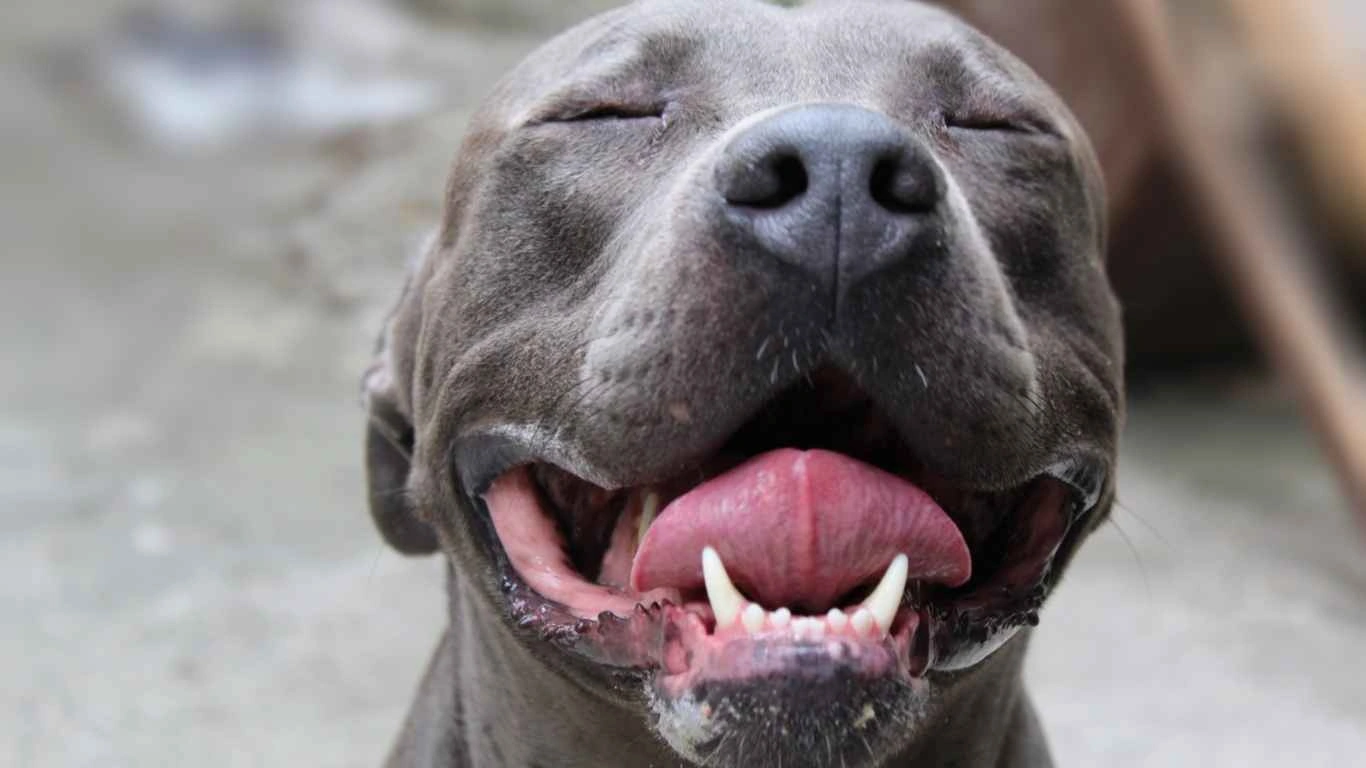Boost Your Dog’s Immune System with the Best Nutrition
As a pet nutritionist and someone who has spent years working in veterinary clinics, I’ve seen firsthand how diet can make or break a dog’s health. One of the most crucial aspects of canine wellness is their immune system—it’s their natural defense against illness, infections, and even chronic diseases. So, if you’re wondering how to keep a dog’s immune system strong through diet, you’re in the right place! The right nutrients can supercharge their defenses, keeping them happy, healthy, and full of life.
Why Your Dog’s Immune System Needs a Nutritional Boost

Your pup’s immune system is like their personal bodyguard, constantly fighting off bacteria, viruses, and environmental toxins. But here’s the thing—just like us, dogs need the right fuel to keep their immune warriors strong. Poor nutrition, processed foods, and low-quality ingredients can weaken their natural defenses, leaving them vulnerable to infections, allergies, and even long-term conditions like arthritis or diabetes.
I’ve seen cases in vet clinics where dogs with nutrient deficiencies ended up with recurring skin infections, digestive issues, and constant fatigue. The good news? A well-balanced, immune-supporting diet can help turn things around.
The Key Nutrients That Strengthen Your Dog’s Immune System

Not all dog food is created equal. If you want to give your furry friend the best shot at a long and healthy life, you need to focus on the right nutrients. Here are some of the most powerful immunity-boosting ingredients:
1. Protein: The Foundation of Immune Health
High-quality protein is an absolute must. It helps build strong cells, including the white blood cells responsible for fighting infections. Aim for real meat sources like:
- Lean chicken
- Grass-fed beef
- Wild-caught fish (like salmon)
- Turkey
- Eggs
When I worked with dogs recovering from illness, I often saw that those on a high-protein diet bounced back much faster than those on low-quality kibble packed with fillers.
2. Antioxidants: Fighting Off Free Radicals
Antioxidants are like tiny bodyguards for your pup’s cells, protecting them from oxidative stress and damage. You can find them in:
- Blueberries – Packed with vitamin C and anthocyanins
- Spinach – Loaded with iron and immune-boosting beta-carotene
- Carrots – A great source of vitamin A for skin and cell health
- Sweet potatoes – Rich in fiber and immune-supporting nutrients
When I started incorporating fresh, antioxidant-rich foods into my own dog’s diet, I noticed fewer seasonal allergies and better energy levels.
3. Omega-3 Fatty Acids: The Anti-Inflammatory Superstars
Chronic inflammation weakens the immune system over time, but omega-3s help combat this. The best sources include:
- Salmon oil
- Flaxseeds
- Chia seeds
- Sardines
A client once switched their senior dog to a diet rich in omega-3s, and within a few weeks, the dog’s joint stiffness improved, and their coat looked healthier than ever.
4. Probiotics: Gut Health Equals Immune Health
Did you know that 70% of a dog’s immune system is in their gut? A balanced microbiome means fewer digestive issues and a stronger immune response. To boost gut health, try:
- Plain, unsweetened yogurt (for dogs without dairy sensitivities)
- Kefir
- Fermented vegetables (like a tiny bit of sauerkraut)
- Probiotic supplements
I’ve had pet parents tell me that after adding probiotics to their dog’s diet, they noticed fewer stomach upsets and better overall energy levels.
Choosing the Right Dog Food for Immune Support

Let’s be honest—there are a lot of commercial dog foods out there, but not all of them are good for your pup’s immune system. When choosing a dog food, look for:
- Whole food ingredients – Avoid fillers like corn, wheat, and soy.
- High-quality protein sources – Real meat should be the first ingredient.
- No artificial additives – Preservatives and artificial colors can weaken immunity.
- Essential fatty acids – Look for foods with omega-3s for anti-inflammatory benefits.
- Added probiotics – Some premium brands include probiotics for gut health.
Over the years, I’ve helped many pet owners transition their dogs to better-quality food, and the difference in their coat, energy levels, and immune resilience has been incredible.
Homemade vs. Commercial Diets: Which One is Better for Immunity?

One of the biggest debates among pet parents is whether a homemade diet or a high-quality commercial dog food is better for immune health. I get this question all the time, and honestly, there’s no one-size-fits-all answer. It depends on your dog’s needs, your lifestyle, and how much effort you’re willing to put into meal prep.
Homemade Diet: Fresh but Requires Careful Planning
There’s no doubt that fresh, homemade meals can be amazing for dogs—if done right. When you prepare your pup’s food at home, you control the ingredients and avoid unnecessary fillers, preservatives, and artificial additives that could weaken immunity.
Some of the best immune-boosting foods to include in a homemade diet are:
- Lean proteins – Chicken, turkey, salmon, or grass-fed beef
- Fresh vegetables – Carrots, spinach, kale, and pumpkin
- Healthy fats – Coconut oil, fish oil, or flaxseeds
- Probiotics – Plain yogurt or kefir for gut health
However, homemade meals require careful balancing. One mistake I often see is pet owners not adding the right amount of calcium, leading to deficiencies over time. That’s why working with a pet nutritionist (like me!) or a vet is essential when going the homemade route.
High-Quality Commercial Diets: Convenient and Balanced
If making fresh meals every day isn’t practical, don’t worry—a good commercial diet can still support a strong immune system. The key is choosing a brand that prioritizes real, whole-food ingredients.
When picking a commercial dog food, look for:
- Named animal proteins – “Chicken” or “salmon” instead of vague terms like “meat by-products.”
- No artificial preservatives – Avoid BHA, BHT, and ethoxyquin.
- Added superfoods – Blueberries, pumpkin, and turmeric are great signs!
Over the years, I’ve helped many dog parents transition from cheap kibble to higher-quality food, and the results have been incredible—fewer allergies, shinier coats, and better digestion.
Hydration and Its Role in Immune Support

We talk so much about food, but let’s not forget about water! Hydration is crucial for keeping a dog’s immune system in top shape. Water helps flush out toxins, supports digestion, and keeps cells functioning properly.
Signs of dehydration in dogs include:
- Dry nose and gums
- Lethargy and low energy
- Thick, sticky saliva
- Loss of skin elasticity
To keep your pup hydrated:
- Make sure fresh, clean water is always available.
- Try adding water to their kibble or switching to wet food.
- Offer bone broth—it’s hydrating and packed with nutrients!
One trick I’ve used with picky drinkers is adding a splash of low-sodium chicken broth to their water bowl. Works like a charm!
Immune-Boosting Superfoods to Add to Your Dog’s Diet

Beyond basic nutrition, some superfoods have extra immune-enhancing properties. I’ve seen these foods work wonders for many dogs, especially those prone to infections or allergies.
1. Turmeric
This golden spice is packed with curcumin, a powerful anti-inflammatory and antioxidant. A tiny sprinkle (mixed with a little coconut oil for absorption) can help support immune function.
2. Mushrooms
Medicinal mushrooms like Reishi, Shiitake, and Maitake are known for their immune-boosting properties. You can find them in supplement form for dogs.
3. Pumpkin
Great for digestion, pumpkin is full of fiber and beta-carotene, which helps strengthen immune responses.
4. Goat’s Milk
Rich in probiotics and easy to digest, goat’s milk supports gut health, which in turn boosts immunity.
Including these foods in moderation can provide an extra layer of defense against illness.
Case Studies & Real-Life Examples

Over the years, I’ve worked with countless pet parents who saw dramatic improvements in their dog’s health just by making the right dietary changes. Here are a couple of real-life cases that show how powerful nutrition can be for the immune system.
Case Study 1: Bella, the Allergy-Prone Labrador
Bella, a 5-year-old Labrador Retriever, suffered from chronic skin infections and allergies. Her owner had tried everything—medications, allergy shots, and special shampoos—but the problems kept coming back.
After reviewing her diet, I noticed she was eating a kibble loaded with fillers and artificial preservatives. We transitioned her to a fresh, whole-food diet rich in omega-3s, antioxidants, and probiotics. Within a few months, Bella’s itchy skin improved, her coat became shinier, and her recurrent infections stopped.
Case Study 2: Max, the Senior Dog with a Weak Immune System
Max, a 10-year-old Golden Retriever, was getting sick frequently. His immune system seemed sluggish, and his energy levels were at an all-time low. His diet consisted mainly of processed kibble with little nutritional value.
We introduced immune-boosting superfoods like turmeric, pumpkin, and medicinal mushrooms into his meals, along with a high-quality protein source. Within weeks, his owner noticed a difference—Max was more active, less prone to infections, and his digestion had improved significantly.
Key Takeaways: What You Need to Remember

To keep your dog’s immune system strong, here are the most important things to focus on:
- Prioritize high-quality protein – Helps build strong immune cells.
- Incorporate antioxidants – Found in blueberries, carrots, and spinach.
- Include omega-3 fatty acids – Reduces inflammation and supports immune function.
- Support gut health – Add probiotics like yogurt or kefir to your dog’s diet.
- Keep them hydrated – Fresh, clean water is essential for detoxification.
- Avoid artificial additives – Preservatives and fillers weaken the immune system.
By making these small but powerful changes, you can help your dog live a longer, healthier life.
FAQs
Here are some common questions I get about keeping a dog’s immune system strong through diet:
Q: Can I give my dog human superfoods like turmeric and blueberries?
A: Yes! Many human superfoods are great for dogs. Just be sure to research proper serving sizes and avoid toxic foods like grapes, onions, and chocolate.
Q: What’s the best way to switch my dog to a new diet?
A: Gradually transition over 7-10 days by mixing the new food with the old. Sudden diet changes can cause stomach upset.
Q: Are raw diets better for immune health?
A: Raw diets can be beneficial if properly balanced, but they also come with risks like bacterial contamination. If you go raw, consult a vet or pet nutritionist to ensure it’s nutritionally complete.
Q: How can I tell if my dog’s immune system is weak?
A: Signs of a weak immune system include frequent infections, allergies, slow wound healing, and low energy. If you notice these, reassess their diet and consult a vet.
Bonus: Additional Resources or DIY Tips
Want to take your dog’s nutrition to the next level? Here are some DIY tips:
- Make homemade bone broth and add it to your dog’s meals for extra nutrients.
- Try a simple immune-boosting smoothie: blend unsweetened yogurt, blueberries, and a teaspoon of flaxseed oil.
- Rotate proteins every few weeks to prevent food sensitivities.
Appendix
Table: Nutrient Sources for Immune Support
| Nutrient | Best Food Sources |
|---|---|
| Protein | Chicken, beef, salmon, eggs |
| Antioxidants | Blueberries, spinach, carrots |
| Omega-3 Fatty Acids | Salmon oil, flaxseeds, sardines |
| Probiotics | Yogurt, kefir, fermented vegetables |
References
Disclaimer
This article is for informational purposes only and does not replace professional veterinary advice. Always consult with a vet before making major changes to your dog’s diet.
Call to Action
Want to learn more about keeping your pup healthy? Subscribe to our newsletter for expert tips, recipes, and nutrition advice tailored for your furry friend!






